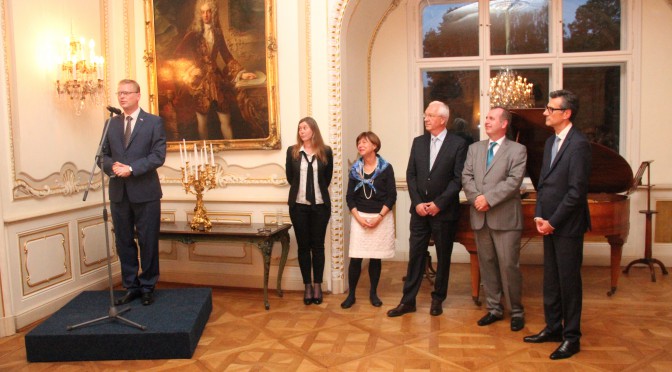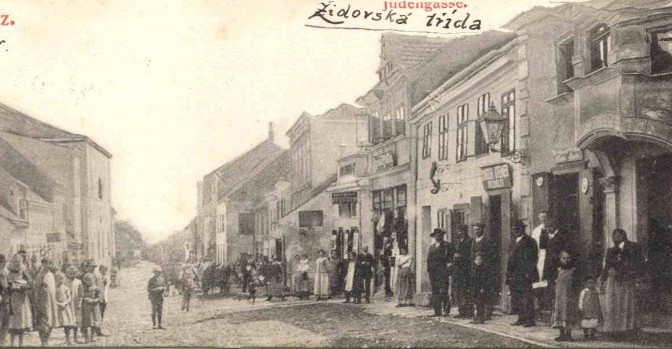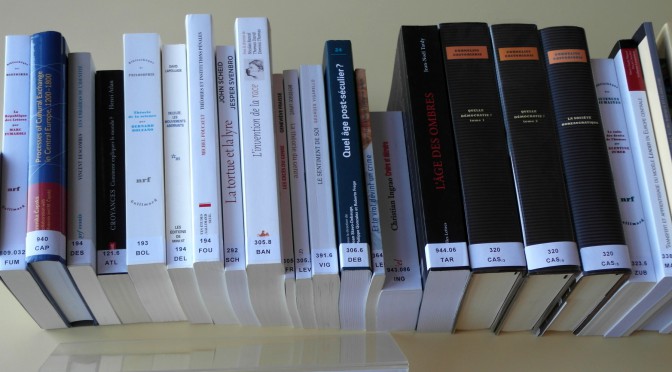Dne 7. a 8. října 2015 bylo zahájeno fungování „Platformy CEFRES“ a nových prostor CEFRESu v budově Akademie věd České republiky. Ta nechala postavit zcela novou knihovnu, která se, kromě 6000 knižních titulů, stane útočištěm také pro tým CEFRESu a pro pražské frankofonní čtenáře.
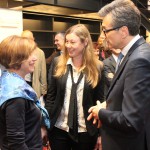 Nový prostor byl slavnostně otevřen 7. října v 17 hodin za účasti velvyslance Jeana-Pierra Asvazadouriana, předsedy AV ČR Jiřího Drahoše, rektora Univerzity Karlovy Tomáše Zimy, partnerů z CNRS Pascala Martyho a Diane Brami. Ministerstvo zahraničních věcí ve Francii zastupoval Philippe Devaud. Hojnou účast naplnili kolegové ze tří institucí Platformy CEFRES, mezi nimi Lenka Rovná, prorektorka pro evropskou problematiku Univerzity Karlovy a Pavel Baran, místopředseda Akademie věd ČR.
Nový prostor byl slavnostně otevřen 7. října v 17 hodin za účasti velvyslance Jeana-Pierra Asvazadouriana, předsedy AV ČR Jiřího Drahoše, rektora Univerzity Karlovy Tomáše Zimy, partnerů z CNRS Pascala Martyho a Diane Brami. Ministerstvo zahraničních věcí ve Francii zastupoval Philippe Devaud. Hojnou účast naplnili kolegové ze tří institucí Platformy CEFRES, mezi nimi Lenka Rovná, prorektorka pro evropskou problematiku Univerzity Karlovy a Pavel Baran, místopředseda Akademie věd ČR.
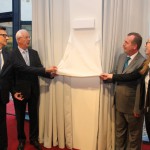 Dvůr domu v ulici Na Florenci 3 se tak stal symbolem posíleného spojení mezi Francií a Českou republikou, neboť knihovna CEFRESu teď hledí přímo na knihovnu Ústavu pro českou literaturu! Centrum je nyní, poté, co vyvinulo svou vědeckou síť a zformovalo dvě generace výzkumníků v srdci Evropy, silně zakotveno do českého akademického prostředí, v těsném sousedství Ústavu pro českou literaturu, Etnologického ústavu, Kabinetu pro klasická studia a Masarykova ústavu.
Dvůr domu v ulici Na Florenci 3 se tak stal symbolem posíleného spojení mezi Francií a Českou republikou, neboť knihovna CEFRESu teď hledí přímo na knihovnu Ústavu pro českou literaturu! Centrum je nyní, poté, co vyvinulo svou vědeckou síť a zformovalo dvě generace výzkumníků v srdci Evropy, silně zakotveno do českého akademického prostředí, v těsném sousedství Ústavu pro českou literaturu, Etnologického ústavu, Kabinetu pro klasická studia a Masarykova ústavu.
Tým CEFRESu se přemístí do svých nových prostor v prosinci 2015, kde vedle knihovny bude mít k dispozici ještě dvě kanceláře ve 4. patře budovy. Akademie věd dále navíc poskytla další pracovní místo pro badatele CEFRESu ve druhé budově v Národní ulici číslo 18, v Ústavu státu a práva, 10 minut od svého hlavního sídla!
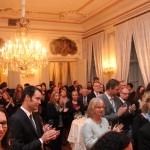 Slavnostní zahájení Platformy proběhlo na třech místech, které patří jejím partnerům. V 18h se na Velvyslanectví Francie v Praze shromáždila celá řada partnerů CEFRES, především univerzity v Brně, Pardubicích, Hradci Králové a v Ostravě, jež připomněly, že Platforma nestojí ve své snaze o česko-franouzskou spolupráci sama. Účast a proslov místopředsedy vlády pana Pavla Bělobrádka ukázal angažovanost vlády a její podporu humanitních a společenských věd a zájem o rozvíjení česko-francouzských vztahů.
Slavnostní zahájení Platformy proběhlo na třech místech, které patří jejím partnerům. V 18h se na Velvyslanectví Francie v Praze shromáždila celá řada partnerů CEFRES, především univerzity v Brně, Pardubicích, Hradci Králové a v Ostravě, jež připomněly, že Platforma nestojí ve své snaze o česko-franouzskou spolupráci sama. Účast a proslov místopředsedy vlády pana Pavla Bělobrádka ukázal angažovanost vlády a její podporu humanitních a společenských věd a zájem o rozvíjení česko-francouzských vztahů.
Prohlédněte si zprávu o události:

- na Radio Prague
- na webu webu Univerzity Karlovy
- v Akademickém bulletinu Akademie Věd
- na webu Velvyslanectví Francie v Praze
- na webu Francouzského institutu v Praze
- nebo také na naší Facebookové stránce
Zahajující koference sociologa Bernarda Lahire, profesora na ENS v Lyonu se konala 8. října v 16h v krásném Vl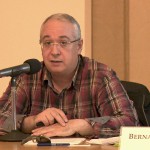 asteneckém sále Karlovy Univerzity. Bernard Lahire v ní vyzdvihl význam interdisciplinárních přístupů k výzkumu o společenském světě, od dějin umění po biologii a neurovědu. Videozáznam konference je dostupný na novém Youtube kanálu CEFRES!
asteneckém sále Karlovy Univerzity. Bernard Lahire v ní vyzdvihl význam interdisciplinárních přístupů k výzkumu o společenském světě, od dějin umění po biologii a neurovědu. Videozáznam konference je dostupný na novém Youtube kanálu CEFRES!

